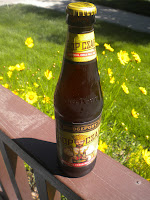by Ellen
 |
| Murphy and me |
A couple of weekends ago, I swung into the saddle for a two
day trail ride with Terri Farley and eight other writers. Terri is the author
of Seven Tears into the Sea and the Phantom Stallion Series. Not only is Terri
a well-known author, she is also an advocate for wild horses.
Terri’s workshop, Writin’ Riders, was held at the Wild Horse
Sanctuary near Redding, California. The sanctuary encompasses five thousand
acres of rugged beauty below the foothills of Mt. Lassen, where hundreds of
wild horses have found a home. During the trail ride, we were lucky to see many
of these beautiful animals.
Upon arriving the morning of the ride, Terri gave a brief
overview of the workshop: character, conflict, and the five senses being the
focus. She gave us little notebooks, fitting perfectly into our back pocket for
recording any information or thoughts we may have.
 |
| Terri Farley |
After six hours in the saddle, we arrived at our base camp.
The camp actually had a shower in a water tower and outhouses with flush
toilets! We chose cabins and cabin mates and then relaxed until a cowboy barbeque.
That evening, by lantern light, we sat around a table near the campfire and
discussed character and conflict and the importance of bringing your writing to
life using the senses. We brainstormed, wrote short stories and then shared
them, enjoying everyone’s creativity.
 |
| Sharing our writing |
In the morning, we saddled up for the long ride back to the
Wild Horse Sanctuary. As I rode along on my horse, Murphy, I thought about
Terri. Not only is she a well-known author, but she works tirelessly saving
wild horses. Because of her, many horses running free today at the sanctuary have
escaped the slaughterhouse and found a home. And as I enjoyed watching so many
colts and fillies, the “ new generation” I imagined if they could, they’d thank
Terri.
 |
| A wild mare and her foal |
Who knows . . . maybe the wild horses whinnying were saying
just that. As for me, this monkey on horseback thanks you, Terri, for an amazing
writer’s workshop.
In the end, I leave you with the senses that I recorded. I
hope they will help you to envision this unique and wonderful writing
experience.
Sight- trails made by wild horses, dusty pathways over and
around volcanic rock, up and up to the top of the world where hazy vistas of
the Sacramento Valley spread far below. Spiky white pine, thick junipers,
Manzanita bushes and tiny purple wild flowers, bleached horse bones, jade-green
watering holes, curious wild horses, a black night stretched tight across the
sky crowded with bazillions of bright stars.
 |
| Looking out over the Sacramento Valley |
Hearing-the clip-clop of horseshoes upon rock, horses snorting,
the jingle of a bridle, the creak of saddle leather, the wind playing in the
pines, teasing the junipers, the cry of a hawk, the call of a quail, a wild
horse whinnying, the campfire crackling, the cowboy dinner bell clanging,
laughter, soft voices rising and falling on the evening breeze, pens scratching
on paper, a shared story. Nature’s peaceful quiet.
Touch-a horse’s velvety nose, like butterfly wings across the
palm of your hand, the apple gone, the horse nudging for more, blowing great
puffs of air into your ear. Being held captive by the hot, June sun and at last
set free by icy, spring water plashed upon your face. Thorny buck brush and
prickly live oak. Snuggling into your sleeping bag after a long days ride,
muscles aching yet satisfied.
 |
| Murphy |
Taste-flavorful camp coffee, tangy cowboy beans, icy spring
water, a cold beer, peppery sausage and gravy poured over fluffy biscuits,
scrambled eggs and sweet, red strawberries.
Smell-brittle pine and spicy juniper on a warm breeze, the
heavenly, honey smell of a horse, the pungent smell of campfire smoke, a sweet
summer’s evening, camp coffee brewing, a fresh, rosy dawn.
 |
| Evening at camp |
So next year, no matter where you
are in your writing, grab your boots and saddle up for a Writin’ Riders
Workshop!






